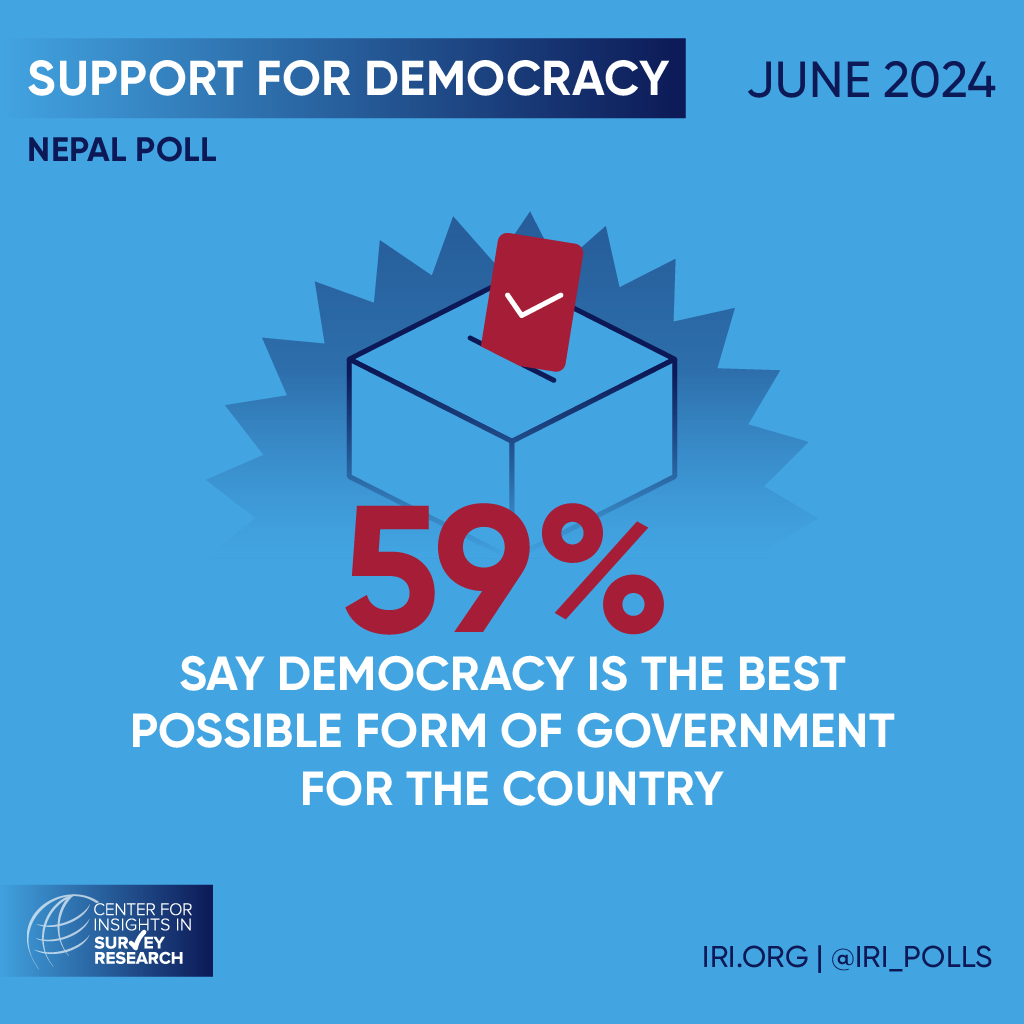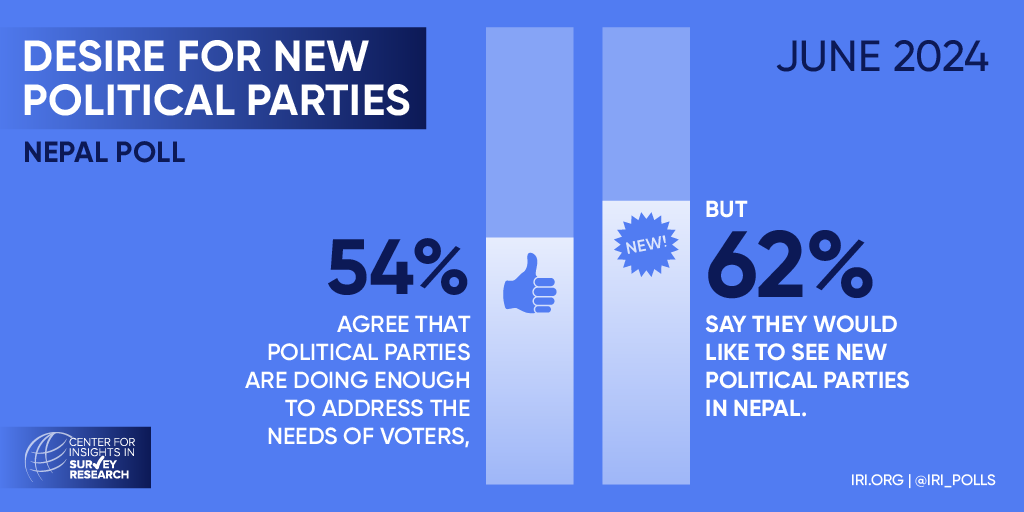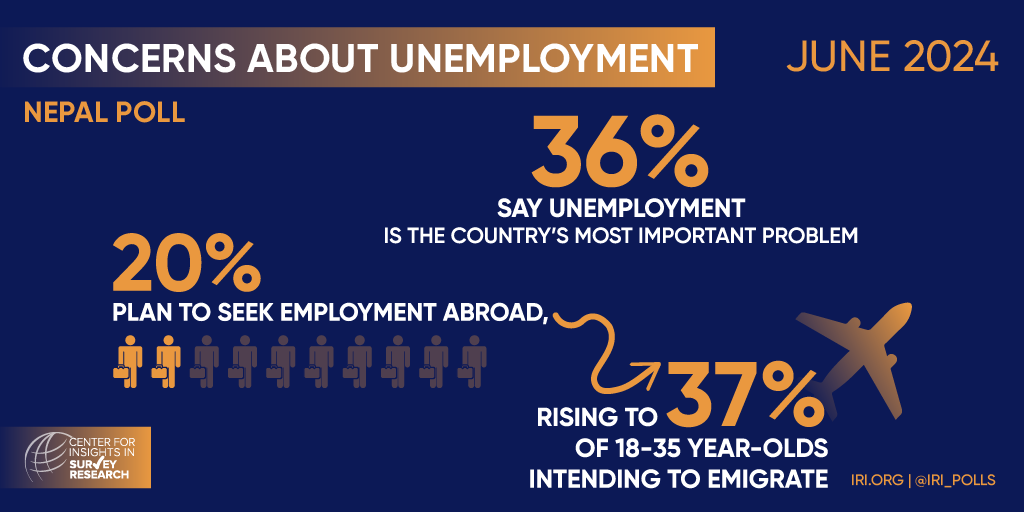IRI Nepal Poll Shows Strong Support for Democracy; Concerns About Unemployment

Kathmandu, Nepal – A new nationwide public opinion poll from Nepal released by the International Republican Institute’s (IRI) Center for Insights in Survey Research (CISR) shows high levels of confidence in democracy, but persistent frustrations with political parties.
The poll found that 59% of Nepal’s residents believe that democracy is the best possible form of government for the country. While 54% say that political parties are doing enough to address the needs of voters, 62% express a desire for new political parties.

“These findings are a welcome sign of Nepal’s progress in building up its democratic institutions,” said Stephen Cima, IRI’s regional director for South Asia. “The people of Nepal clearly want a government that reflects their priorities, and their desire for new political parties indicates that more work needs to be done in this area.”
When asked to identify Nepal’s most important problem, a plurality (36%) cited unemployment. While just 20% of respondents overall say they plan to seek employment abroad in the future, the proportion is much higher among youth: Thirty-seven percent of respondents between the ages of 18-35 say they have not worked abroad but plan to do so in the future.

“The survey suggests a real risk of brain drain, with high unemployment pushing young Nepalese to emigrate,” said Stephen Cima. “The government and the country’s political leaders must show that they are serious about tackling this issue if they are to prevent this and maintain the public’s faith in the ability of democracy to deliver.”
Methodology
The survey was conducted by Solutions Consultant Pvt. Ltd. on behalf of the Center for Insights in Survey Research of the International Republican Institute throughout Nepal from June 4-23, 2024, through computer-assisted telephone interviews (CATI) based on a random digit dial (RDD) sample of mobile telephone numbers. The total sample consists of n= 2,400 residents of Nepal aged 18 and older. The survey data was weighted by age, gender, province, urbanicity, and educational attainment according to data from the 2021 Census. The margin of error for the midrange of the full sample does not exceed +/-2.0 percentage points. The response rate was 24 percent.
Top